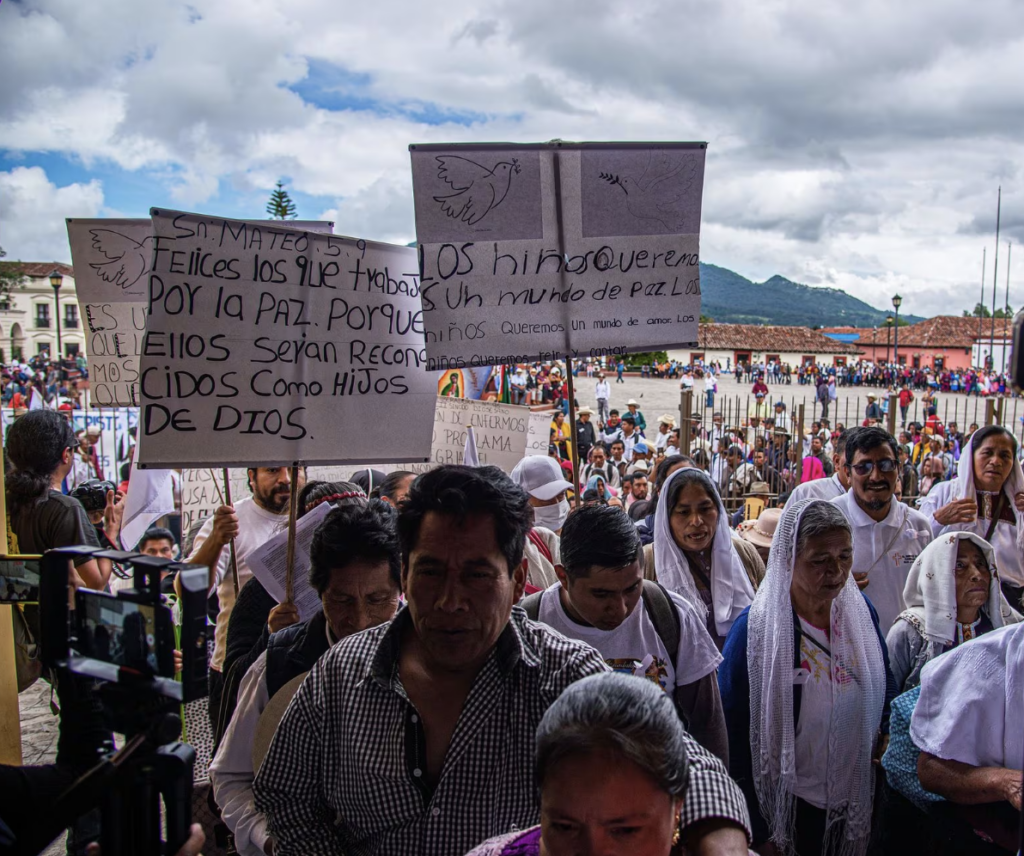
03/08/12 – The International Narcotic Control Board’s (INCB) Annual Report for 2011, launched in Vienna, Austria on February 28, emphasizes the Mexican government’s efforts to fight drug-trafficking and recognizes some success in implementing measures “to address illicit activities and curb the influence of the criminal organizations involved.” Among those efforts are the strengthening of the judiciary to better respond to drug production and trafficking, and the increasing cooperation of judicial and law enforcement authorities with other American countries. The INCB, an independent body of the United Nations (UN), also considers that Mexican authorities have made some progress in drug-related law enforcement, and that criminal organizations related to drug trafficking are being weakened.
Despite the advances, the report points out that Mexico faces serious drug-related challenges. The INCB stresses the unprecedented levels of violence in the country, and the increasing capacity of drug cartels to undermine the state apparatus “including federal and state police, the criminal justice system, and the media through the use of corruption, as well as threats and intimidation.” The INCB is particularly concerned with the targeting of journalists by drug trafficking organizations. According to the National Commission on Human Rights of Mexico (Comisión Nacional de Derechos Humanos, CNDH), 71 journalists have been killed since 2000 –allegedly by organized crime groups–, while many others have been threatened and intimidated. In this sense, INCB appreciates the initiatives taken by some other UN bodies such as the Office on Drugs and Crime, and the Mexican government’s efforts to improve and strengthen the freedom of press and the safety of media professionals in the country.
Regarding the production and trafficking of narcotic and psychotropic drugs, INCB points out that, notwithstanding the Mexican government’s commitment with the goals and objectives of international drug control treaties, the country not only remains a major producer of cannabis and opium poppy, but is also a key transit country in cocaine trafficking to the U.S. market and an important manufacturer of methamphetamine.
According to the UN report, unlike the prevailing trend in the United States and Canada where indoor cultivation of cannabis prevails, Mexican authority’s raids continue to discover “outdoor operations of an unprecedented scale and sophistication.” On the other hand, the potential manufacture of heroin in Mexico could be estimated at 9% of the global production, despite government eradication efforts, and Mexico continues to rank third in heroin exports to North America, after Afghanistan and Colombia. Mexico has also experienced the most significant reduction of cocaine seizures in the region, dropping from 48 tons in 2007 to 9.4 tons in 2010. The report states the country has become an important manufacturer of methamphetamine, based in the fact that the number of laboratories dismantled increased from 21 in 2008 to 191 in 2009. (Click here to read more about the record-breaking meth bust last month in Jalisco.)
During the presentation of the UN report, the board president, Proffesor Hamid Ghodse, emphasized the main unintended consequence of the success of the Mexican government to weaken drug cartels has been the spread of violence to Central American countries, where Mexican organizations are conducting their trafficking activities. When asked about the recent declarations of Guatemalan President, Otto Perez Molina, proposing the decriminalization of production, transportation, and trade of illicit drugs to combat drug trafficking, President Ghodse declared, “legalization is not an option,” a stance that U.S. Vice President Joe Biden supported and reiterated during a recent tour of Central America. Ghodse added that a complex issue such as drug trafficking cannot be solved with simple solutions, and the progress will mainly come with efficient and global application of international drug control treaties.
Sources:
“Alcanza violencia niveles insospechados en México: ONU”. Proceso. February 28, 2012.
“International Narcotics Control Board Annual Report 2011”. United Nations. February 28, 2012.
“Lucha antinarco detonó violencia insólita en CA”. El Universal. February 28, 2012.
“Biden visits Honduras amid drug legalization debate.” CNN. March 6, 2012.





Pingback: UN RECOGNIZES SUCCESS IN MEXICAN DRUG WAR DESPITE REMAINING CHALLENGES | Northern Barbarians's Blog
Prohibition has finally run its course; the lives and livelihoods of hundred’s of millions of people worldwide have been destroyed or severely disrupted; many countries that were once shining beacons of liberty and prosperity have become toxic, repressive, smoldering heaps of hypocrisy, and a gross affront to fundamental human decency. It is now the duty of every last one of us to insure that the people who are responsible for this shameful situation are not simply left in peace to enjoy the wealth and status that their despicable actions have, until now, afforded them. Former and present Prohibitionists must not be allowed to remain “untainted and untouched” from the unconscionable acts that they have viciously committed on their fellow human beings. – They have provided us with neither safe communities nor safe streets; we will provide them with neither a safe haven to enjoy their ill-gotten gains nor the liberty to repeat such a similar atrocity!
Prohibition has evolved local gangs into transnational enterprises with intricate power structures that reach into every corner of society, helping them control vast swaths of territory while gifting them with significant social and military resources.
Those responsible shall not go unpunished!